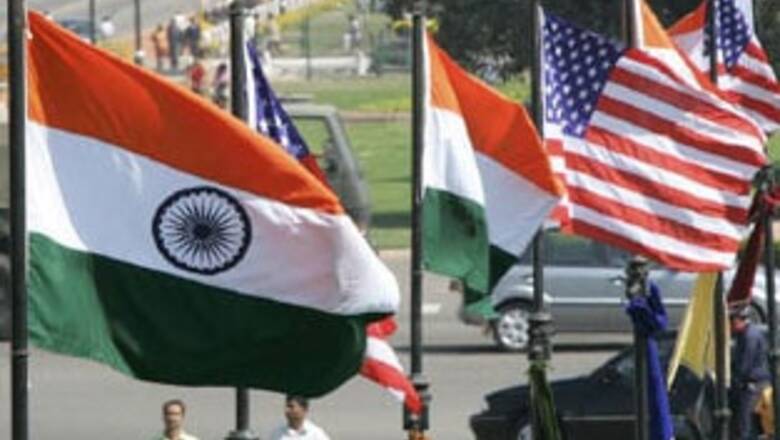
views
Washington: Nearly 1 lakh skilled Indian workers' prospects of living the American dream may turn sour with the Congress barring firms that received bailout money from hiring foreigners through H-1B visa programme if they replace the US citizens.
Estimates suggest that there are 1 lakh Indian nationals among the 1.63 lakh from across the world that had applied for the skilled worker visa in FY2009.
The US has capped the H-1B visa at 65,000 a year, out of which 40,000-45,000 generally goes to Indian professionals - mostly from the IT industry.
Restricting hiring of H-1B visa holders forms part of American Recovery and Reinvestment Act, widely known as the stimulus bill, which was passed by the Congress on Saturday.
With thousands of jobs being cut by the US companies almost daily over the past few months, there have been widespread apprehensions that these positions could go to low-cost foreign workers or might be outsourced to places like India.
The government data for 2008 shows that about 5.7 lakh Indians were issued H-1B and other non-immigrant visas.
The bar comes even as IT firms in the US and India are demanding an increase in the H-1B visa cap, which was cut from 1.95 lakh to the present level two years ago. Indians then accounted for over 1 lakh H-1B visas.
Experts believe the Congress' move would certainly impact hiring of H-1B visa holders, thus affecting in a big way the engagement of Indian techies in the US, but might not affect outsourcing of jobs to places like India.
Senator Bernie Sanders, who along with another Senator Charles Grassley had moved the proposal for such restrictions, said that about a dozen banks which are getting over $150 billion as the bailout money have sought visas for over 21,800 foreign workers in past six years to replace sacked Americans.
These banks have announced at least 1 lakh job cuts in the recent months, Sanders noted.
Earlier this month, India-born international economist Jagdish Bhagwati also argued that the provision to restrict hiring of H-1B visa holders would deprive the US of the best global talent which comes in the form of highly trained and talented people.
"In terms of broader considerations like the people who are coming in on H-1B visas -- they're frequently highly trained and talented people and ... a lot of our progress and prosperity depend on having such people," Bhagwati, Professor of Economics at the Columbia University had said.
The American Immigration Lawyers Association, which also has been opposing the measure, described the Congress approval as "disappointing" and argued that this would prove to be counterproductive as it prevents the US companies to hire the best available global talent.














Comments
0 comment